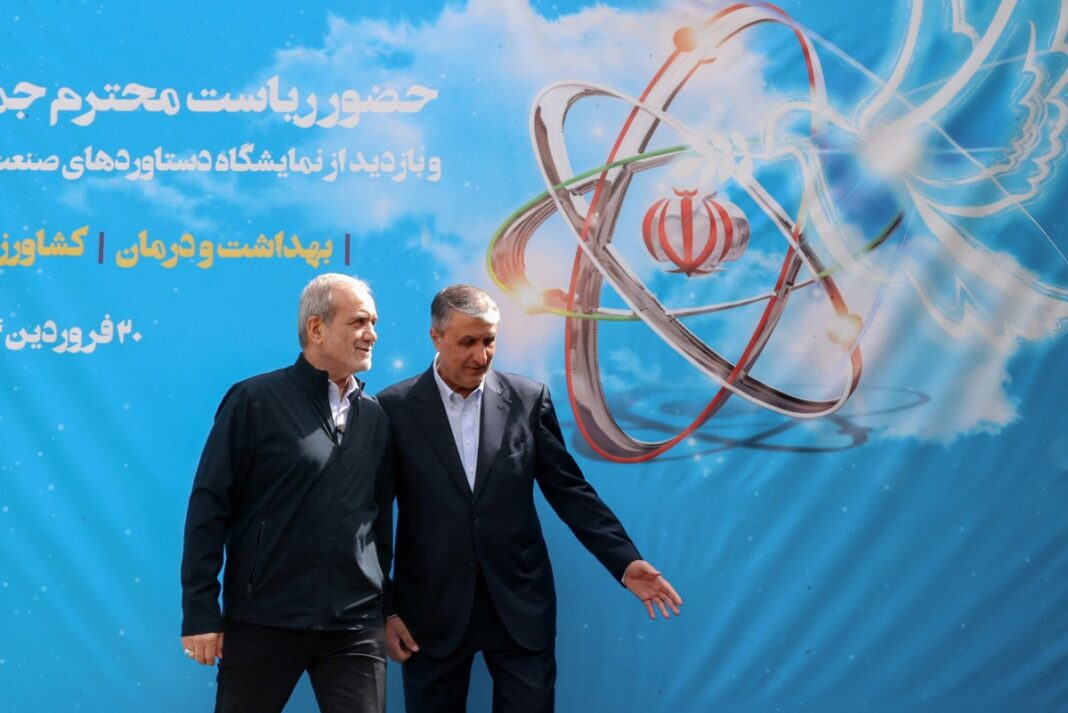The United States and Iran are set to begin high-stakes negotiations on Iran’s nuclear program, with President Donald Trump warning of military action if the talks fail to yield a new agreement. These talks mark the highest-level discussions between the two nations since the US withdrew from the 2015 nuclear deal in 2018 under Trump’s leadership.
The discussions will be led by Trump’s special envoy, Steve Witkoff, and Iranian Foreign Minister Abbas Araghchi, taking place in Muscat, Oman. Oman has historically served as a mediator between Iran and Western nations. According to Iranian news agency IRNA, Araghchi’s delegation departed Tehran for Muscat on Saturday.
“I want Iran to be a wonderful, great, happy country. But they can’t have a nuclear weapon,” Trump stated just before the talks began. He had previously announced the negotiations on Monday.
Iran’s supreme leader’s adviser, Ali Shamkhani, emphasized that Tehran is seeking a fair and genuine deal and has “important and implementable proposals” ready. However, Iran insists on using an intermediary, while the United States prefers direct talks. The initial discussions are expected to involve indirect negotiations facilitated by Omani Foreign Minister Badr bin Hamad Al Busaidi.
The backdrop of these talks includes rising tensions and mutual threats of military action from both the United States and Israel. Trump, when asked about the potential outcome of the talks, reiterated, “If it requires military, we’re going to have military.”
In response, Tehran has warned that it could expel UN nuclear inspectors, a move the US has described as an “escalation.” Despite the threats, Iran, under the strain of international sanctions and the weakening of its allies, Hezbollah and Hamas, is motivated to reach an agreement.
The United States aims to ensure Iran never develops nuclear weapons. The 2015 agreement, which Trump withdrew from, was designed to prevent Iran from obtaining a nuclear bomb while allowing it to pursue civilian nuclear technology. However, Iran has significantly ramped up its nuclear activities since the US withdrawal, including enriching uranium to 60%, close to weapons-grade levels.
US negotiator Witkoff emphasized that while the US position demands Iran dismantle its nuclear program, they are open to finding a compromise. However, he made it clear that no deal would be acceptable unless it ensured Iran’s nuclear capabilities could not be weaponized.
Experts suggest that Iran is unlikely to dismantle its nuclear program entirely but may consider rolling back its activities in exchange for relief from sanctions. Additionally, discussions are likely to include Iran’s regional activities, such as its support for groups in the Middle East, a key concern for US allies in the Gulf.
For Iran, the survival of its regime is the primary concern, with hopes that sanctions relief will help revive its ailing economy and improve domestic stability.
This pivotal round of talks is set against the clock, with both sides knowing that failure could lead to further escalation.
Report by AFP.

